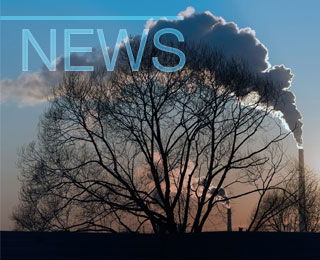India has launched the world's first trading programme for particulate air pollution quotas. The western state of Gujarat piloted the scheme on 5 June involving some 350 industrial plants in Surat, including cement plants.
The trading programme has been devised by academic experts, including Anat Sudarshan from the University of Chicago and Nicholas Ryan from Yale University. The government will cap the total amount of air particulate matter than can be emitted over a period of time by all the plants in total. Then permits allowing a certain quantity of emissions are allotted to each plant. Permits can then be exchanged on the National Commodity and Derivatives Exchange from 1 August.
While individual plants can exceed their emissions quota by buying permits, the total emissions of participants in the programme remain within the government's cap.
"Many environmental regulations are concerned more with inputs - like whether an industry installs equipment, what that equipment costs, and so forth - rather than the results that are achieved," said Nicholas Ryan. "This programme flips that around, by focussing on the output - hard cap on pollution emissions - and allowing industries to use whatever means they can to reach that goal."
Emissions will be measured in real time with continuous emissions monitoring CEMS) equipment which is already mandatory for 'heavily polluting' industries in India such as cement plants.
If expanded across India, the programme will mitigate air pollutants under 2.5 micrometres (PM2.5). "We will compare the industrial plants brought under the programme to those not under the programme, to measure the impact on air emissions and compliance costs," added Nicholas Ryan.
